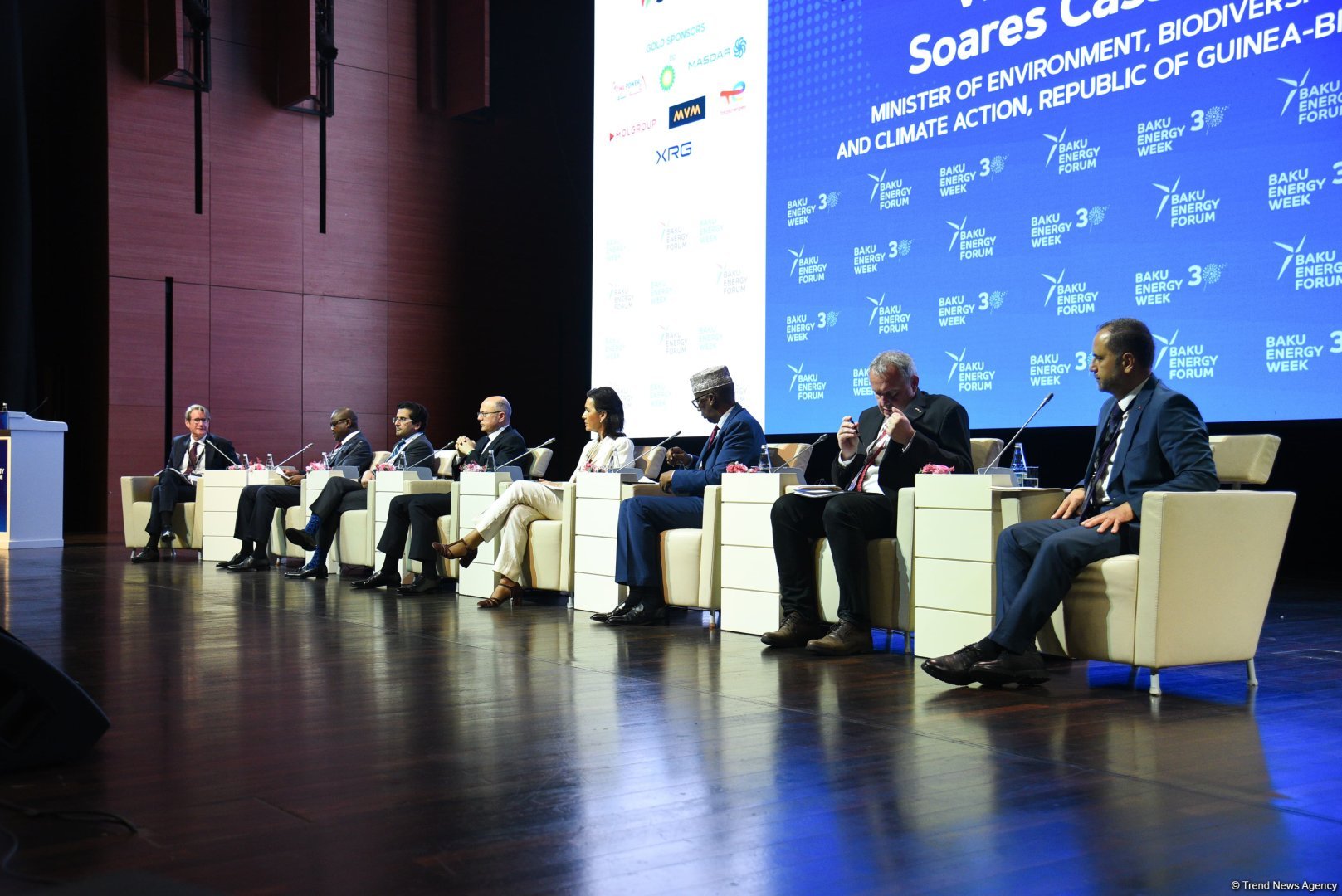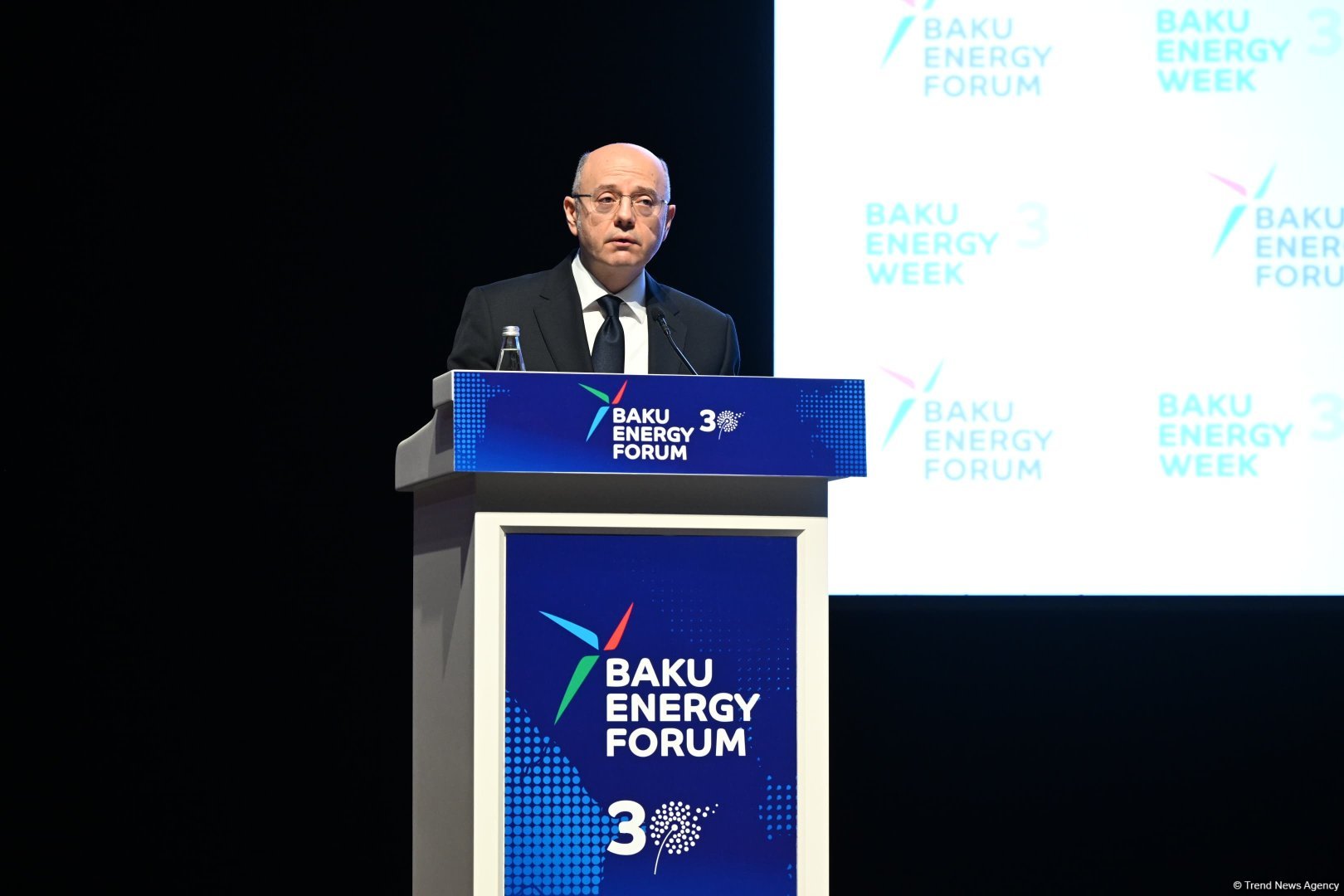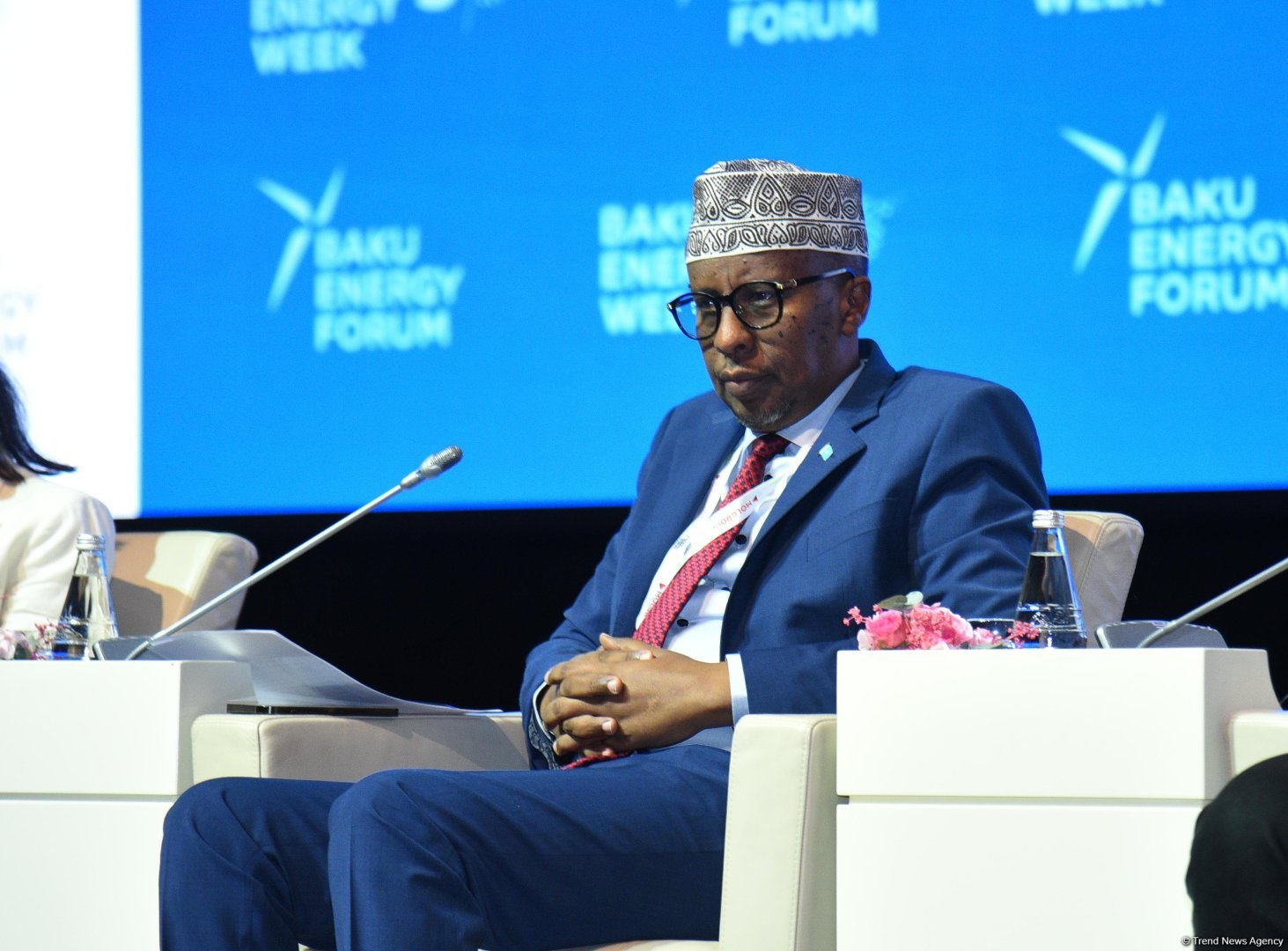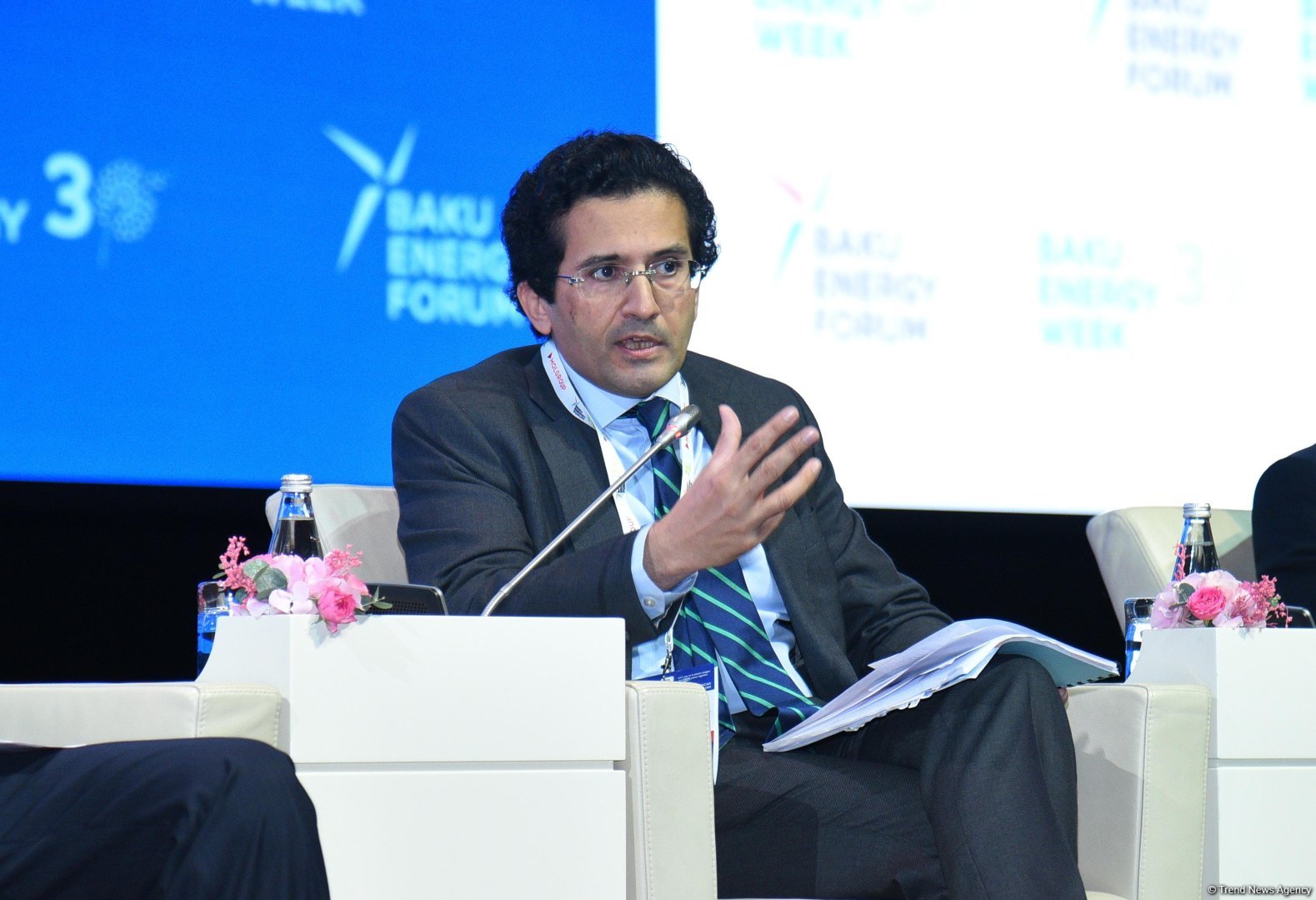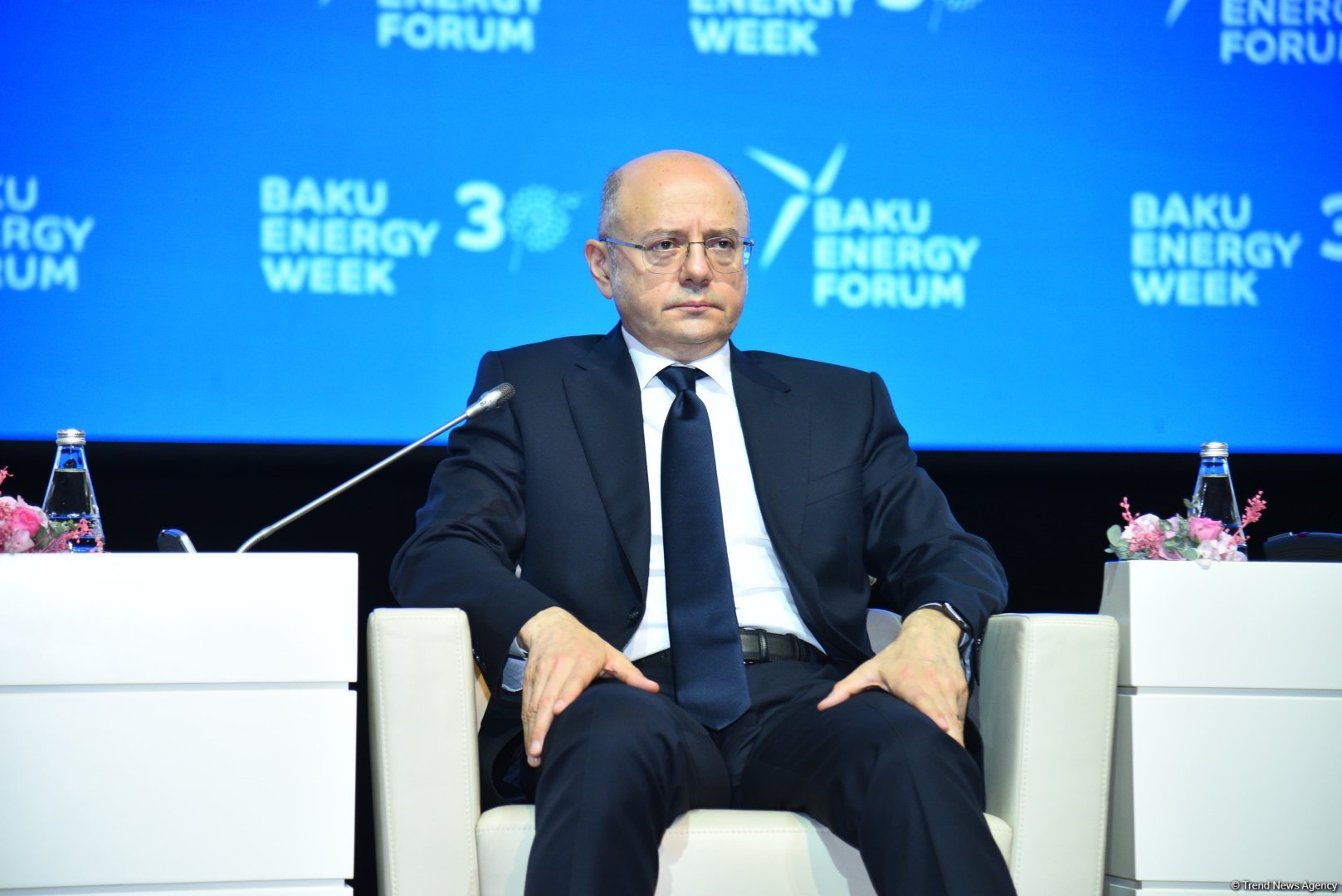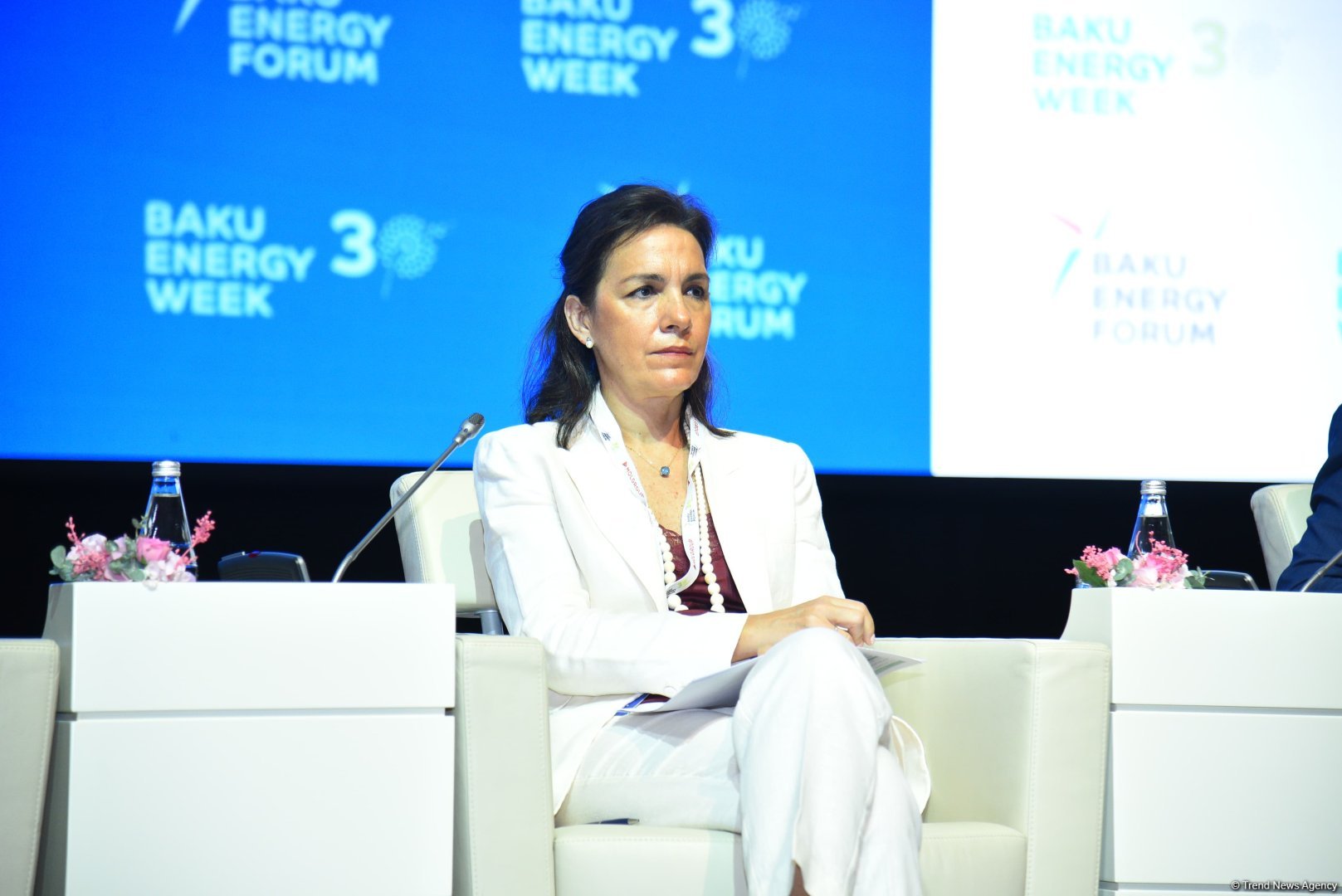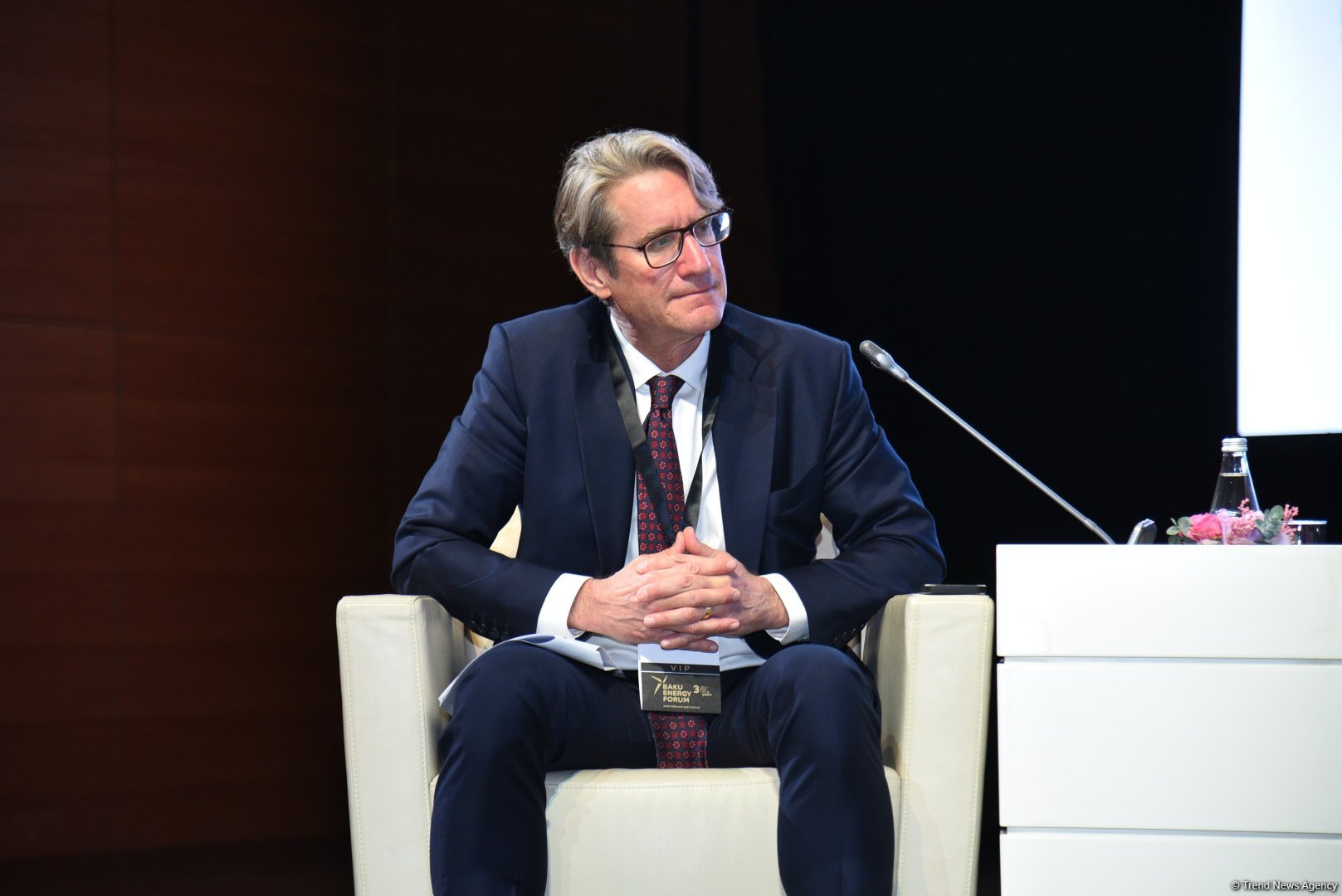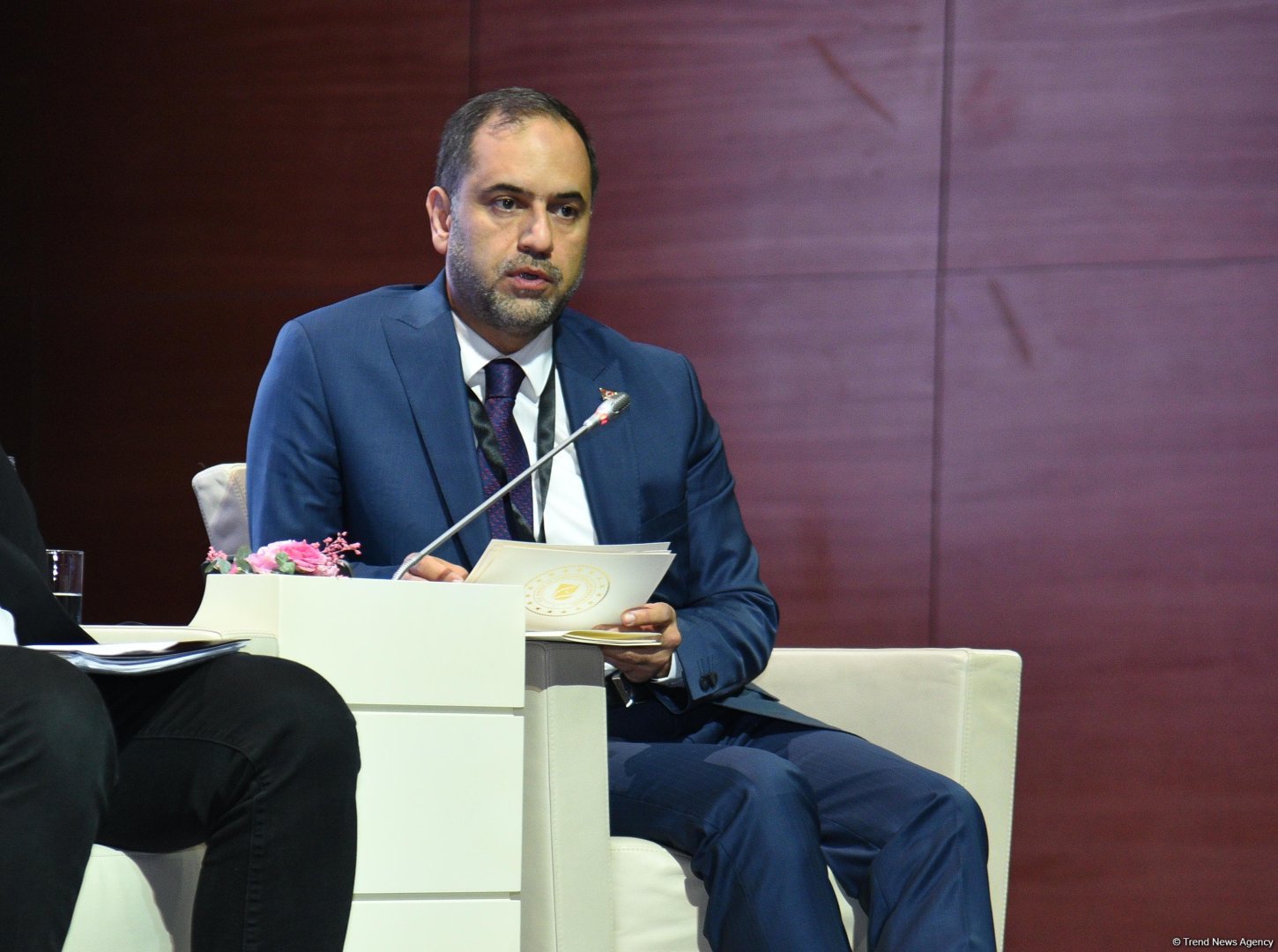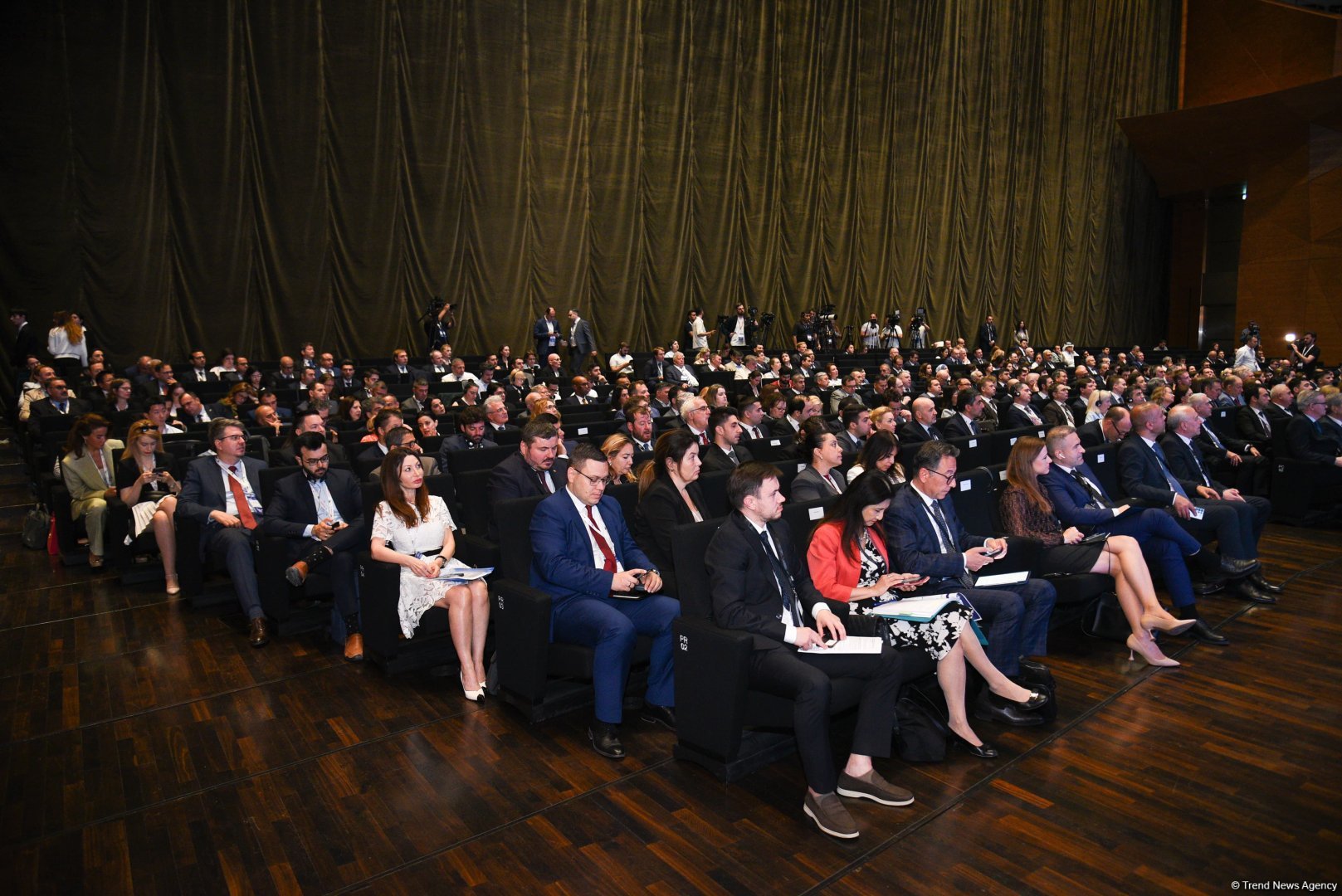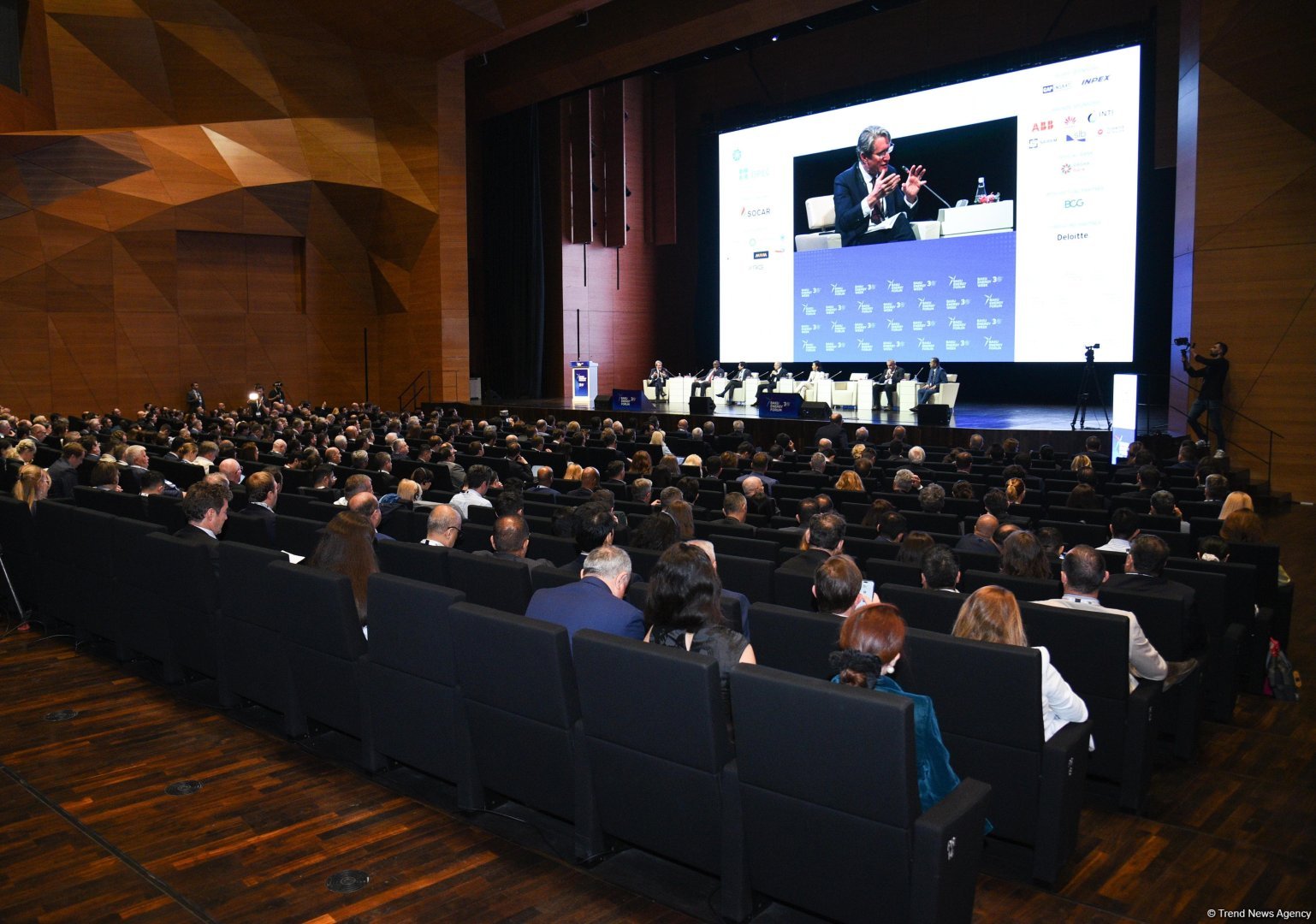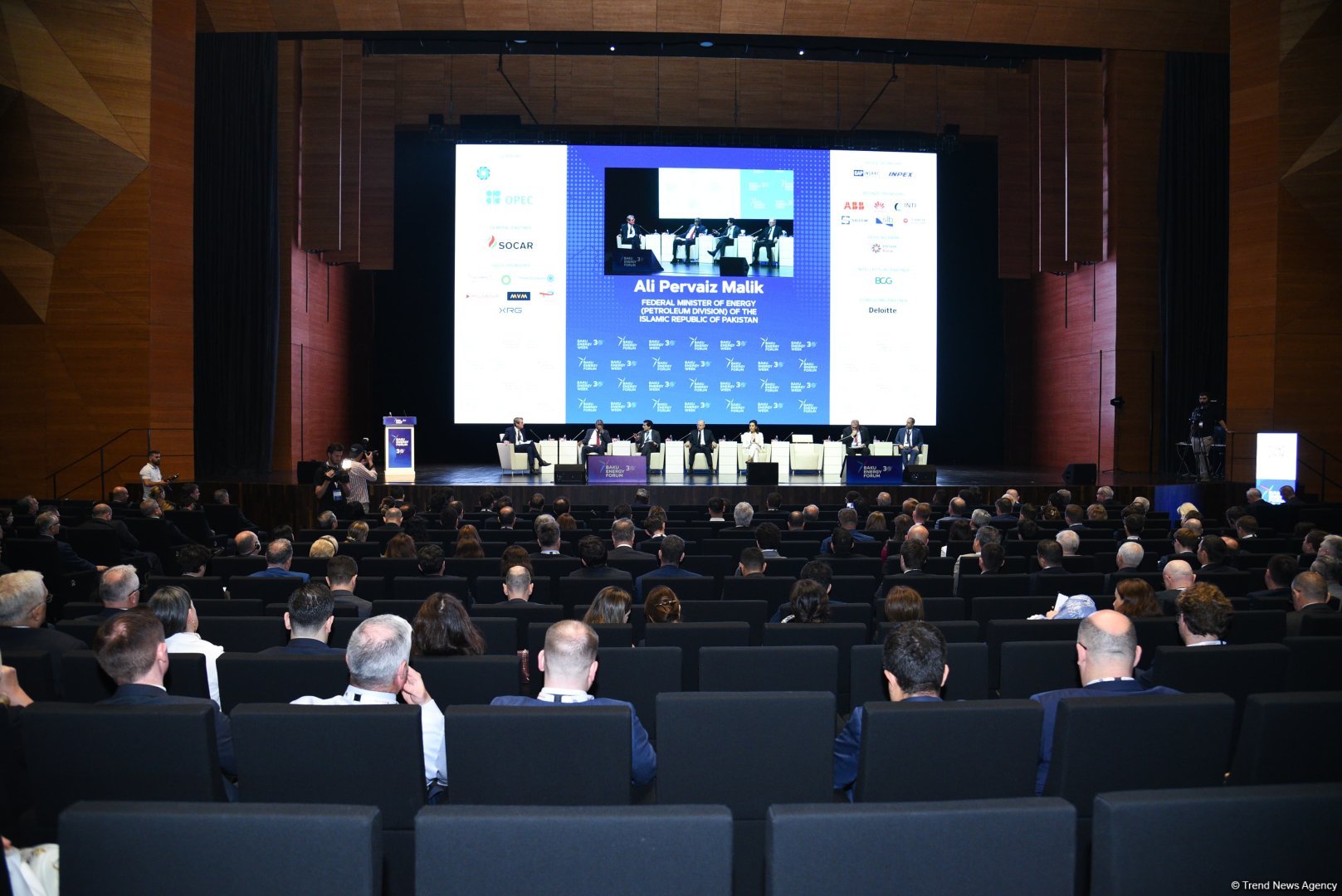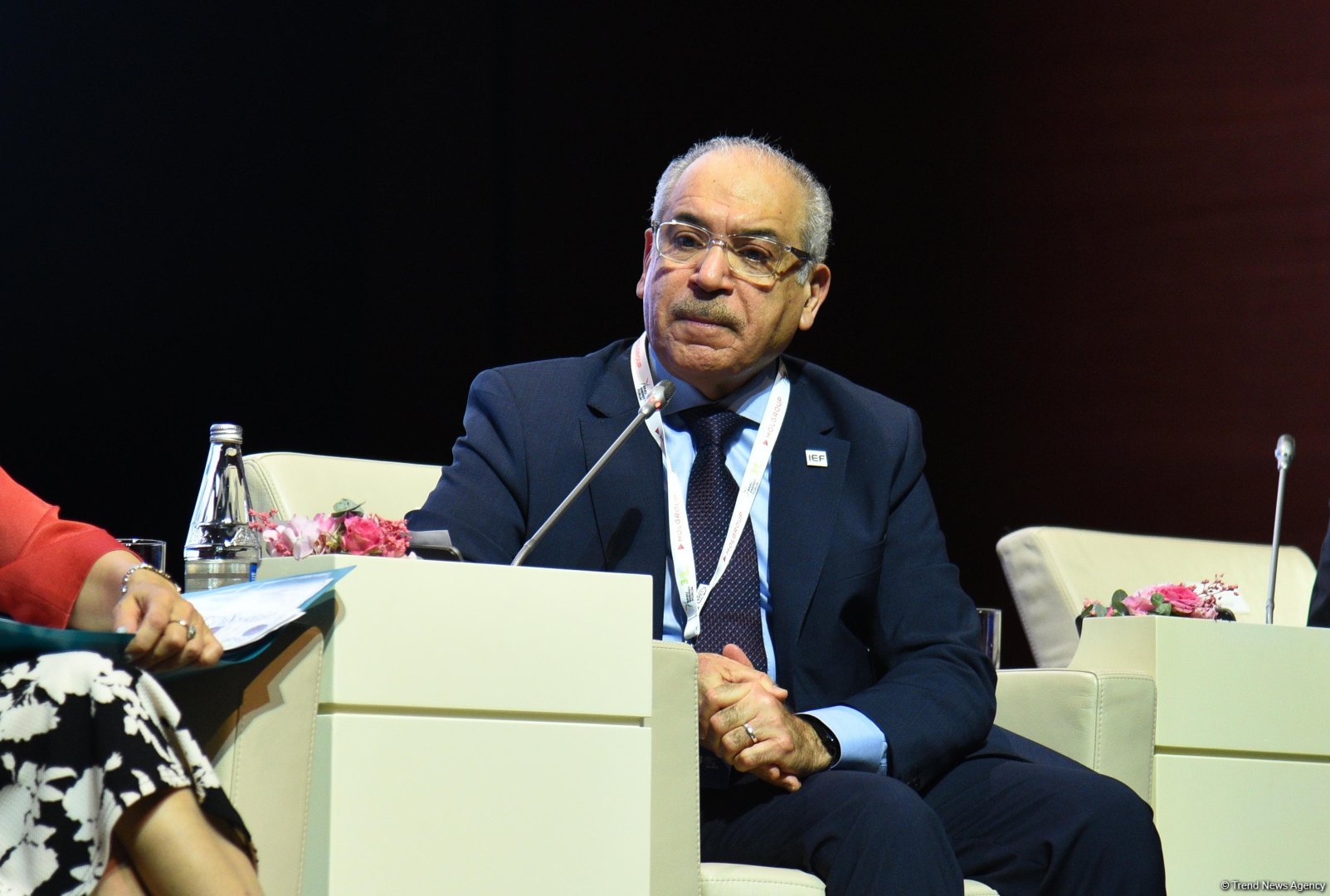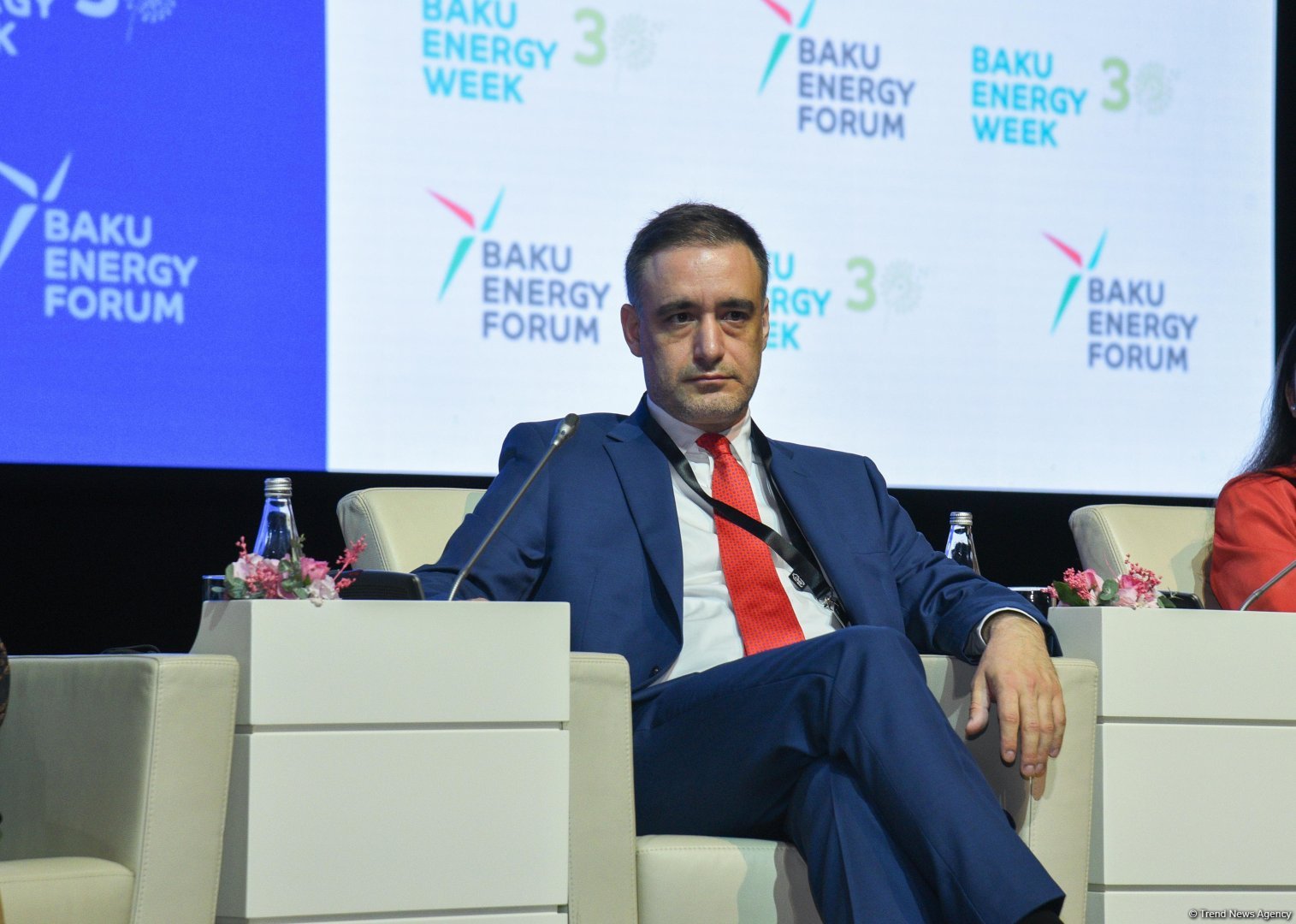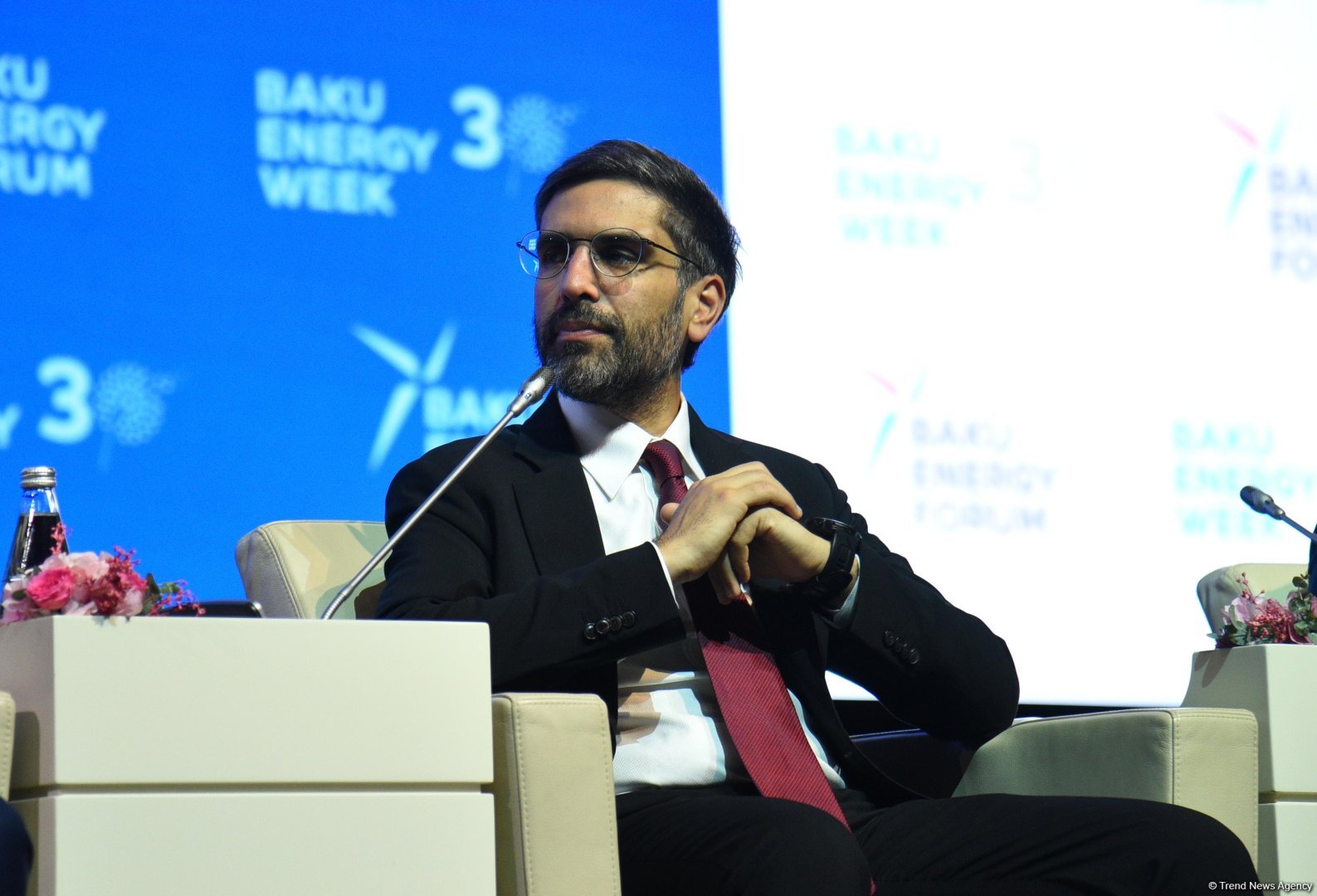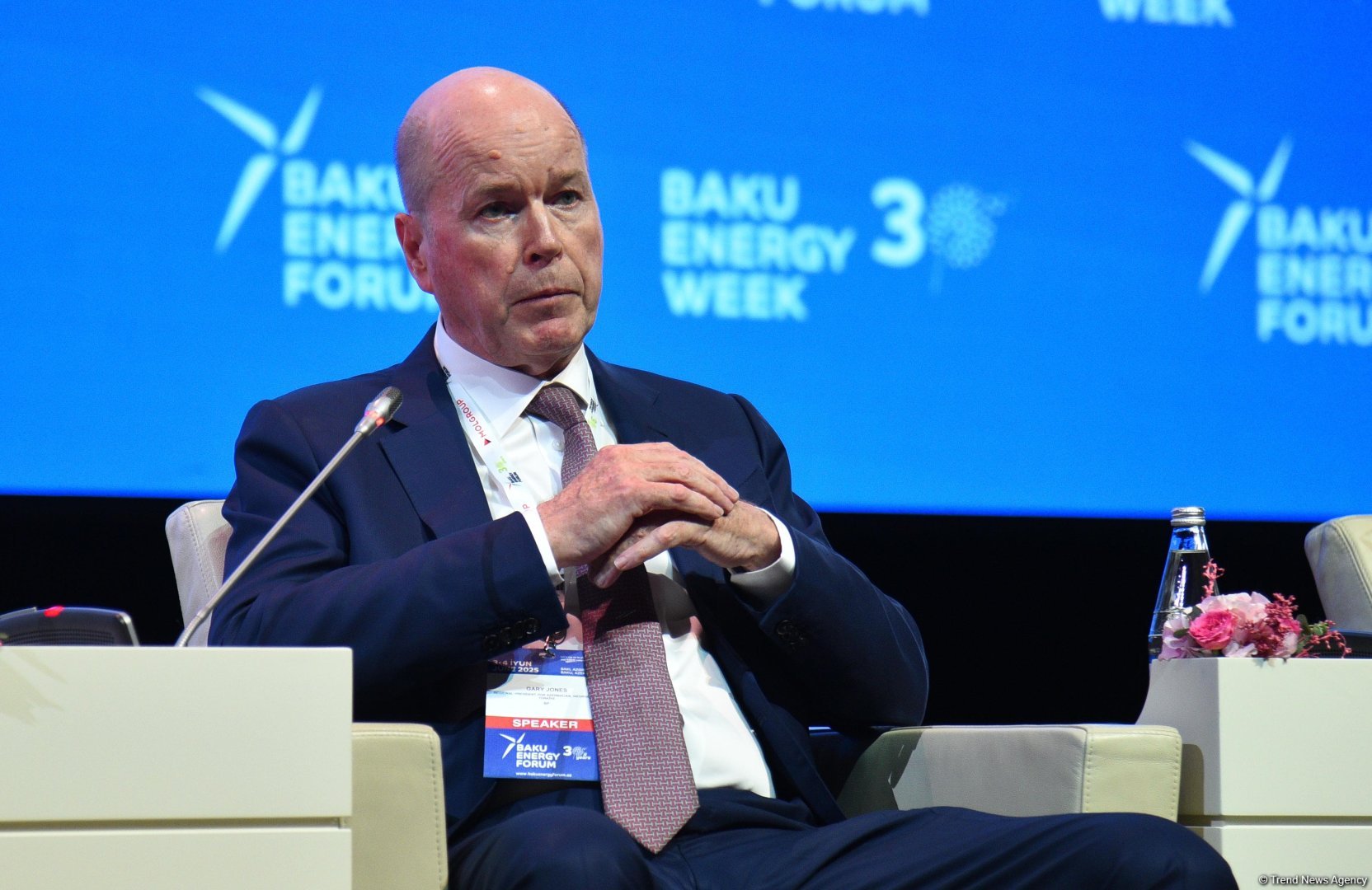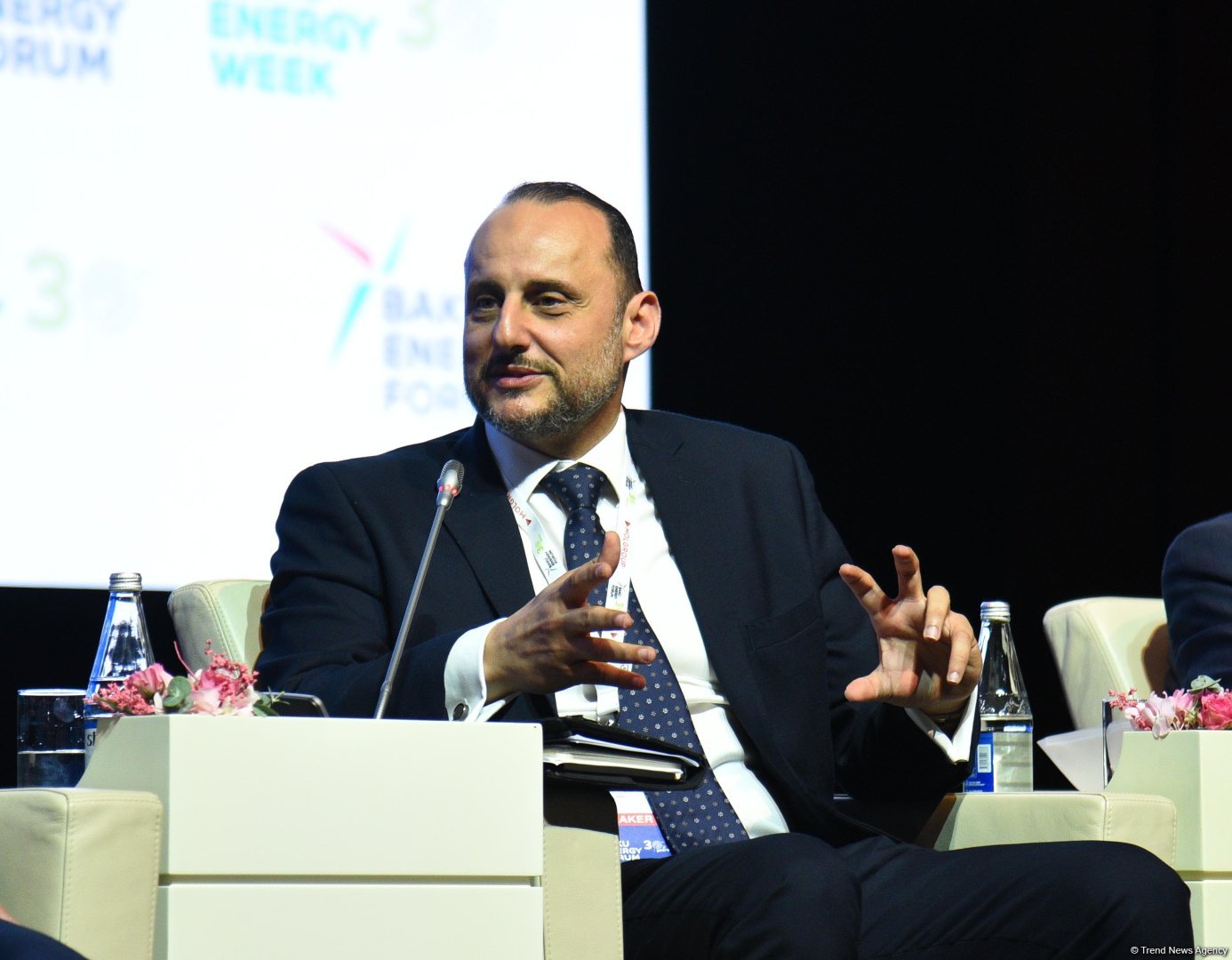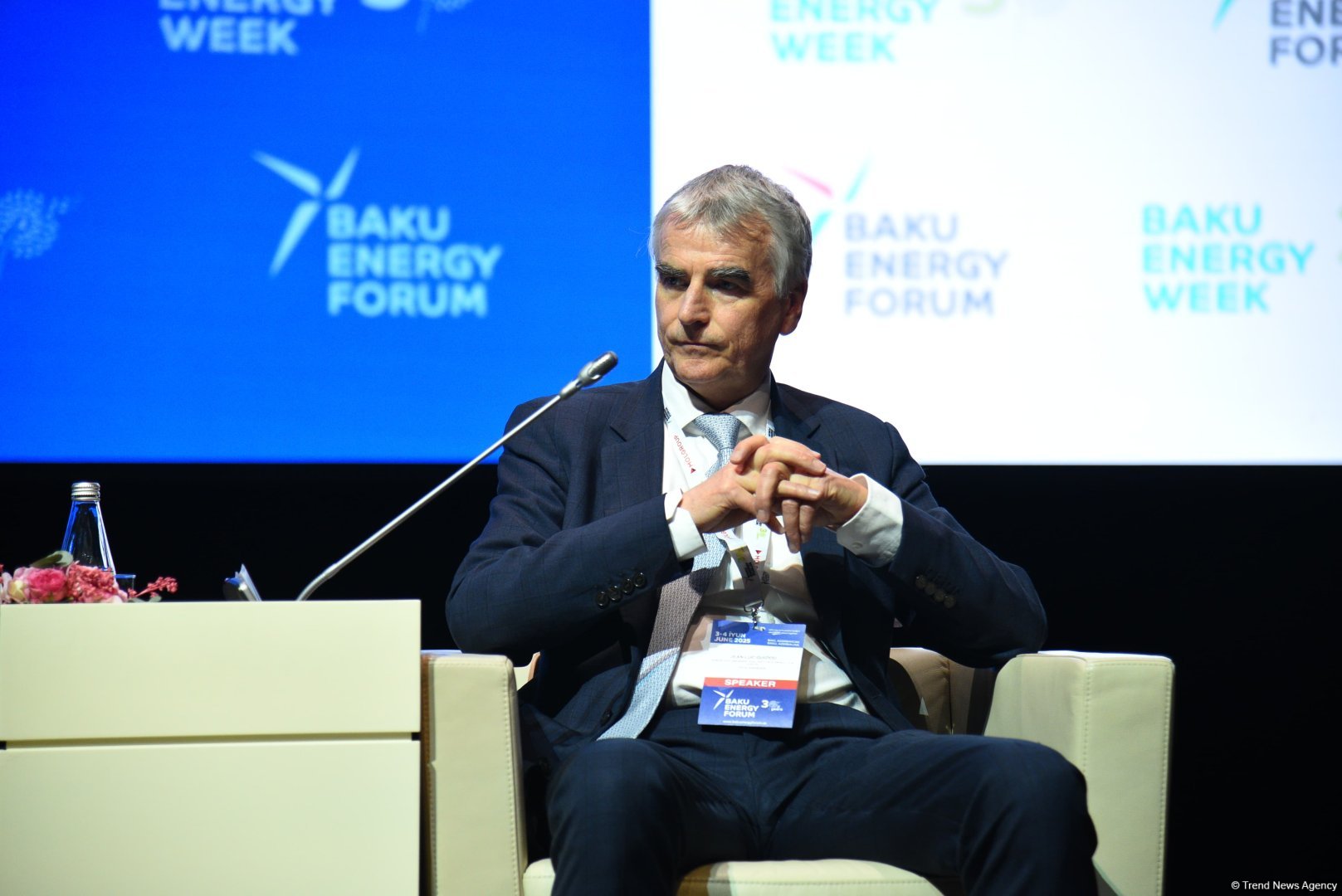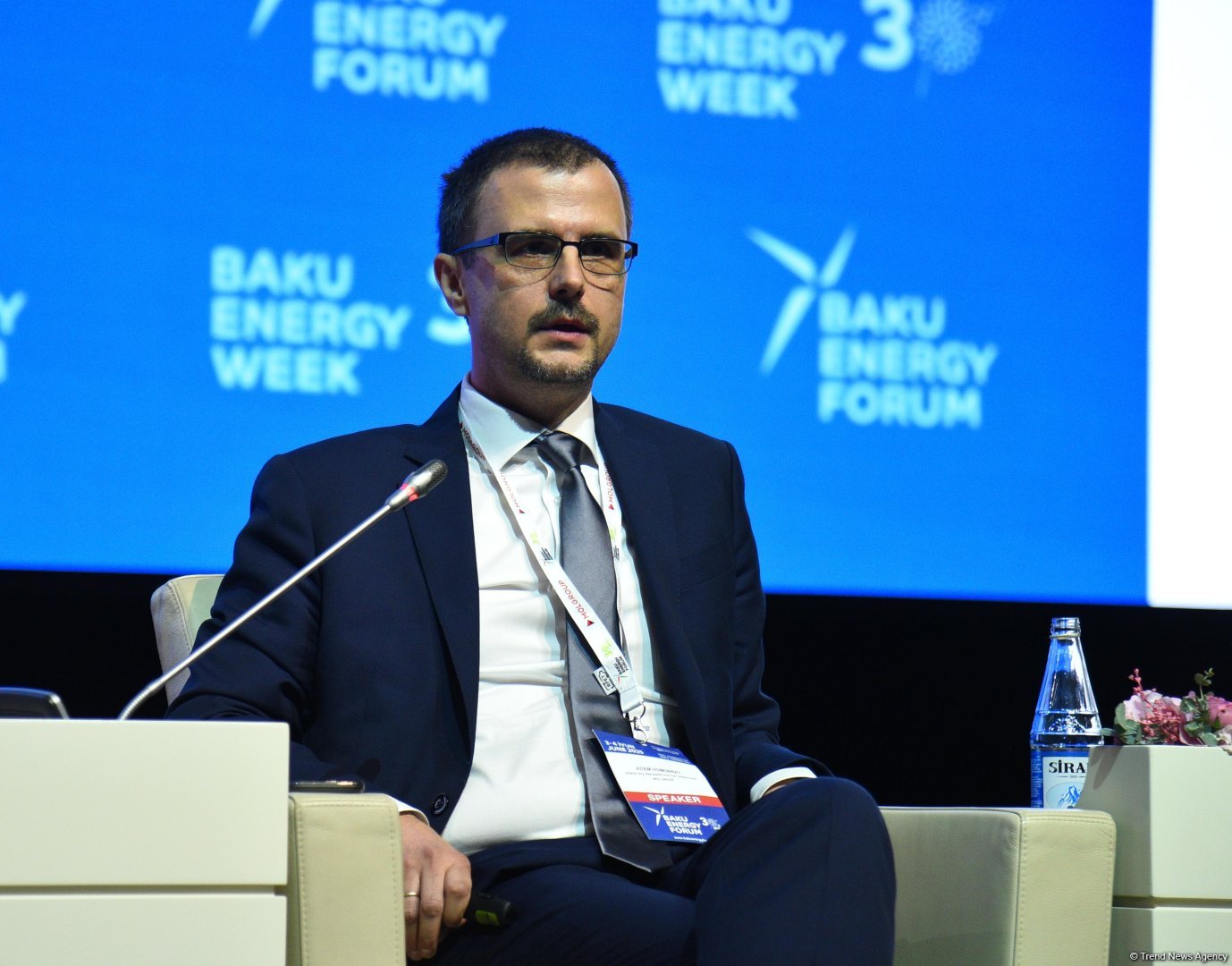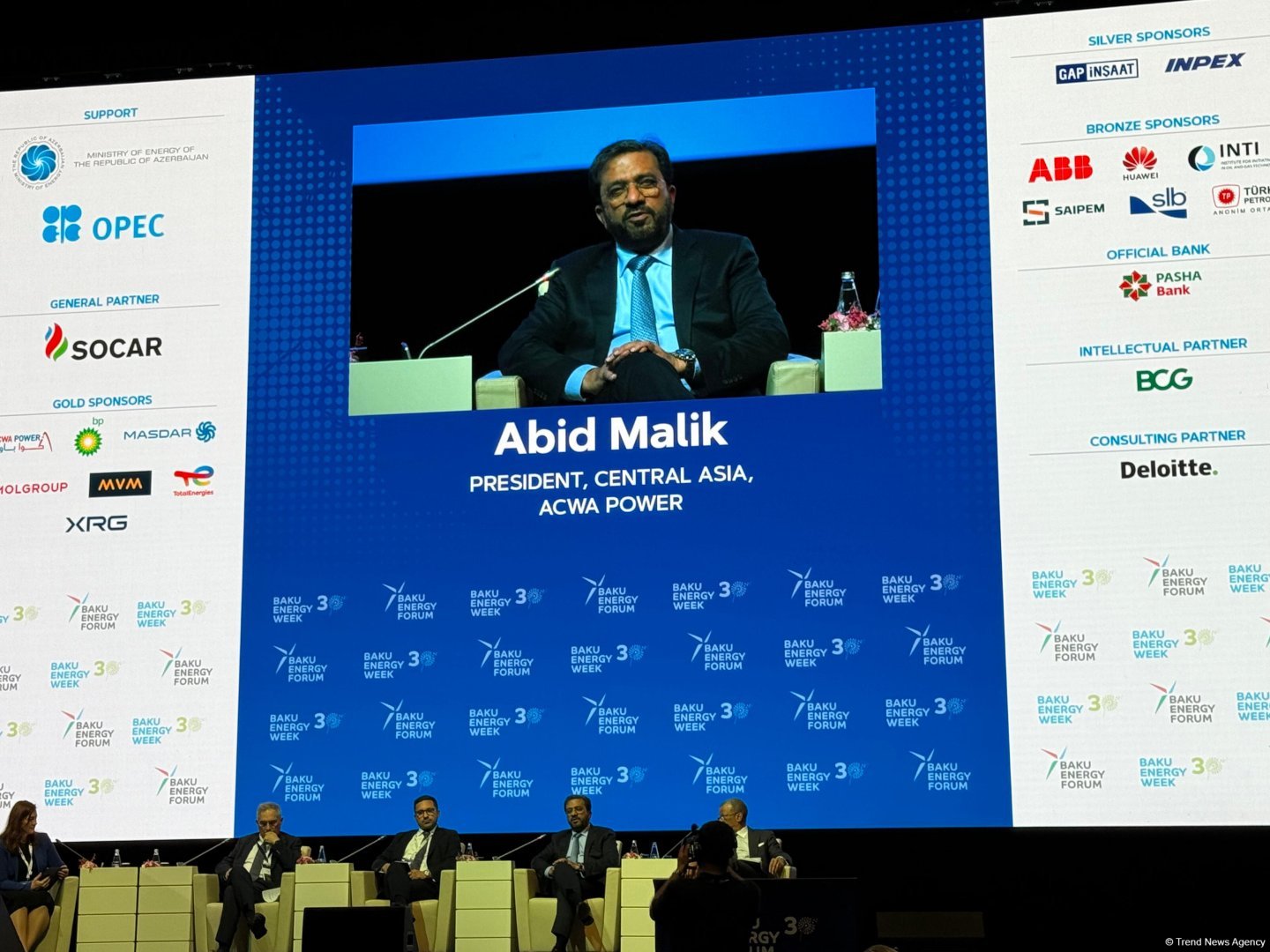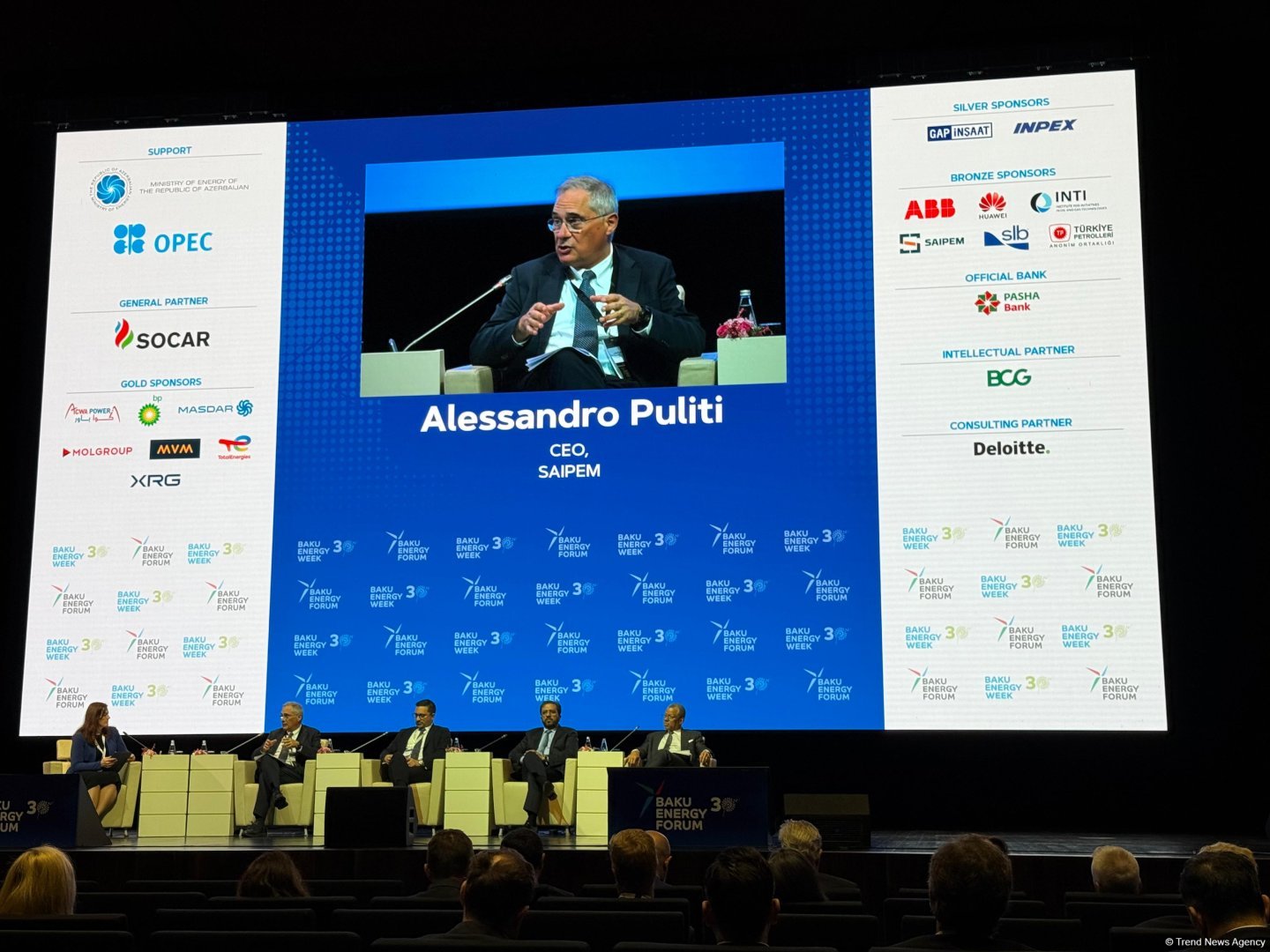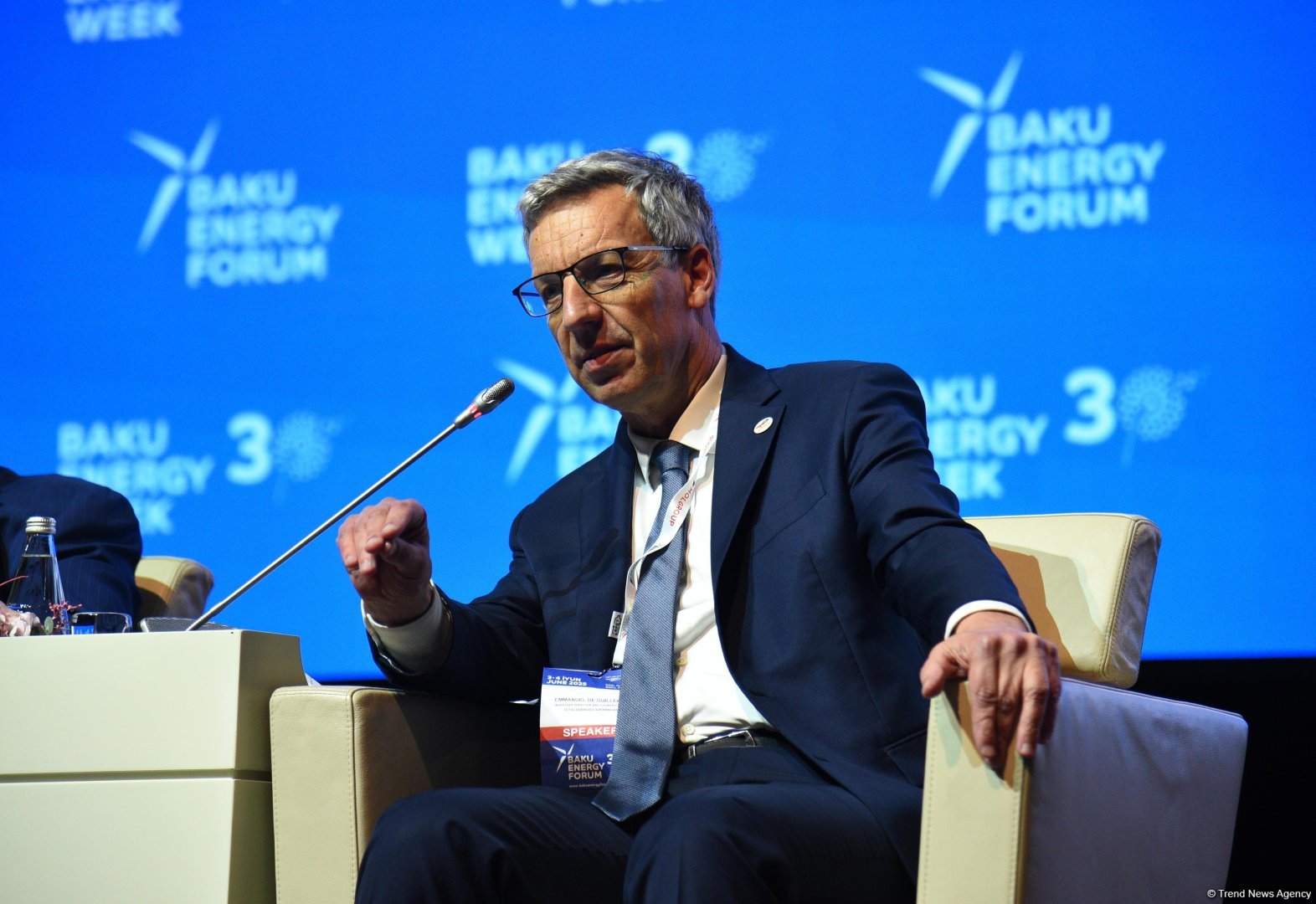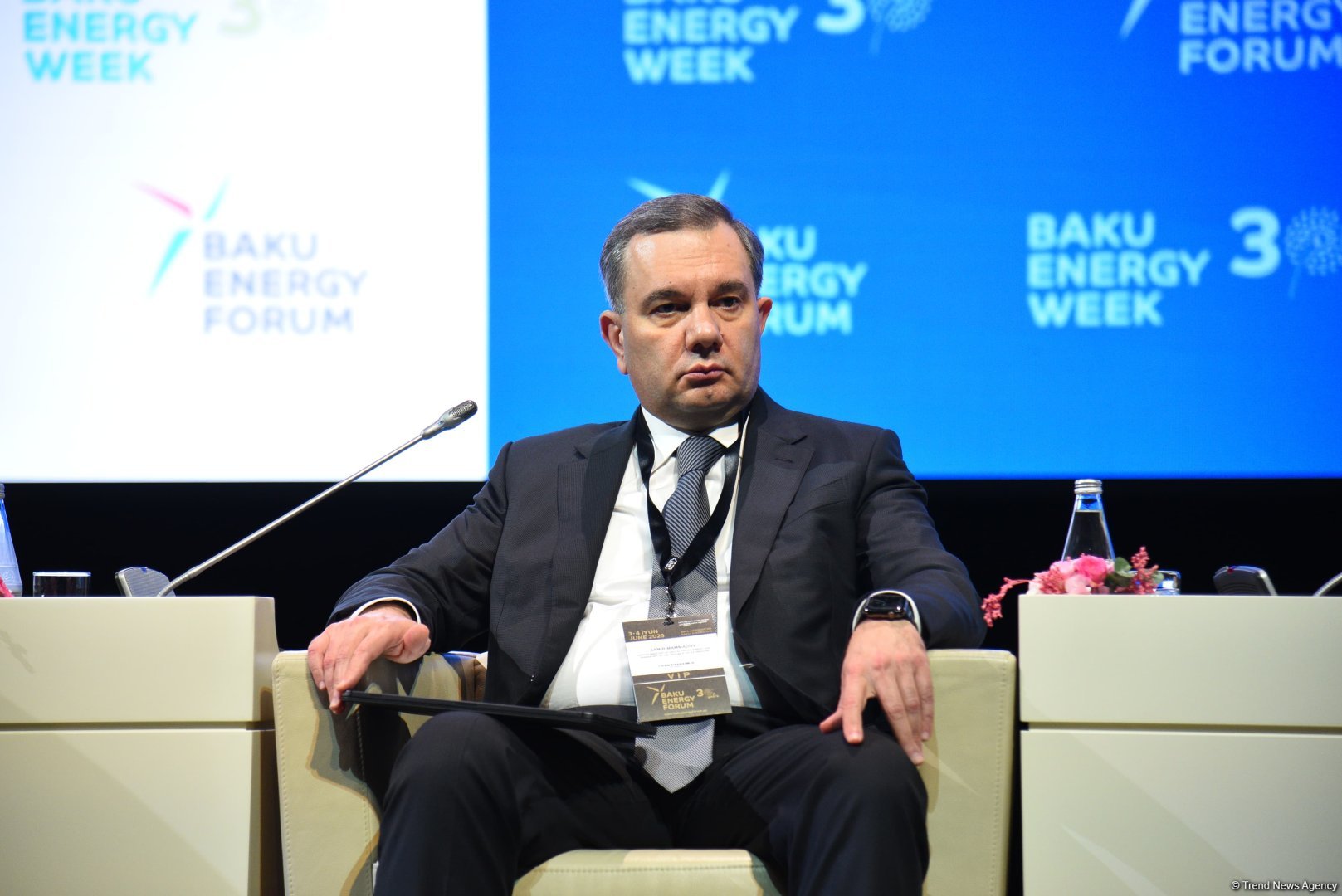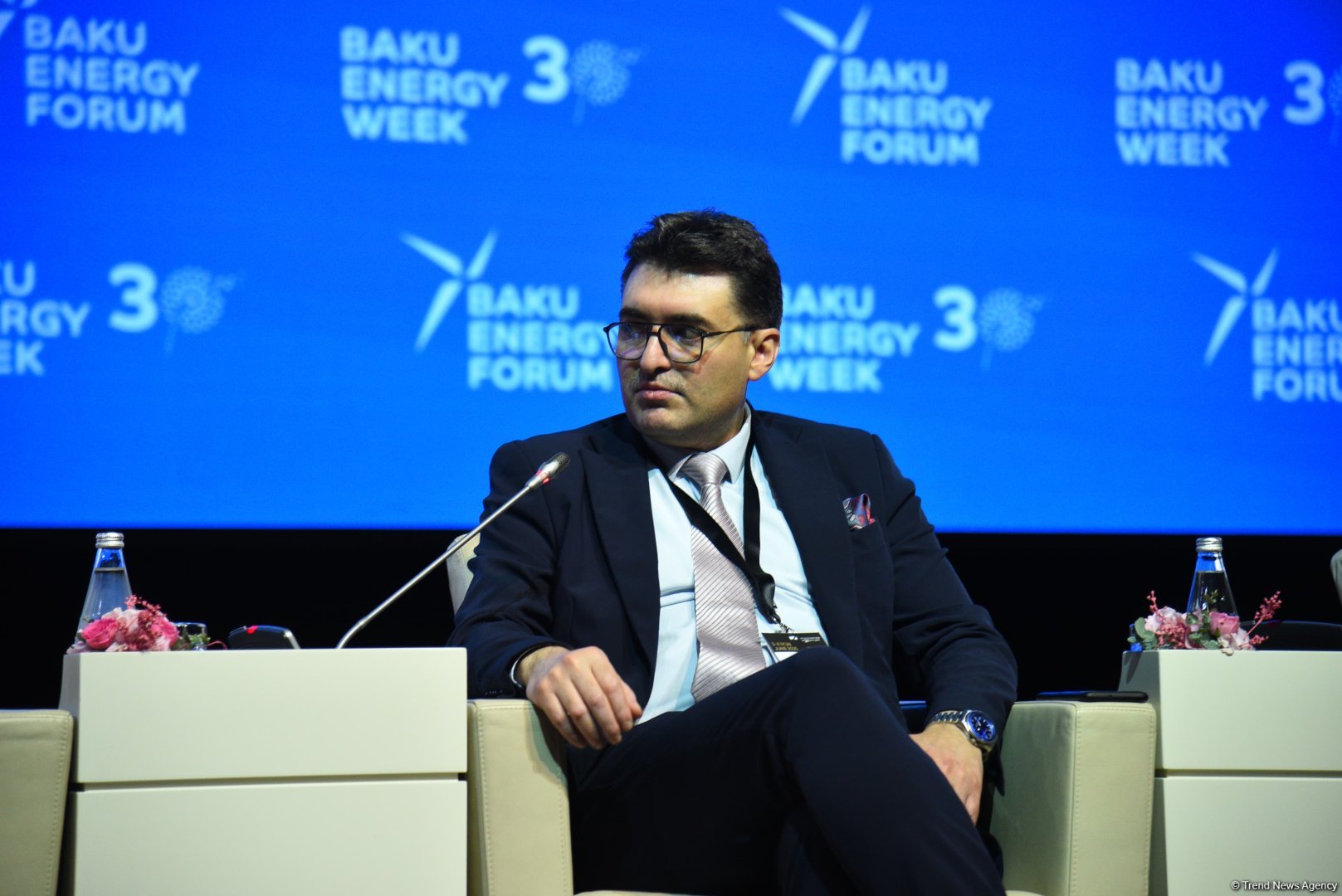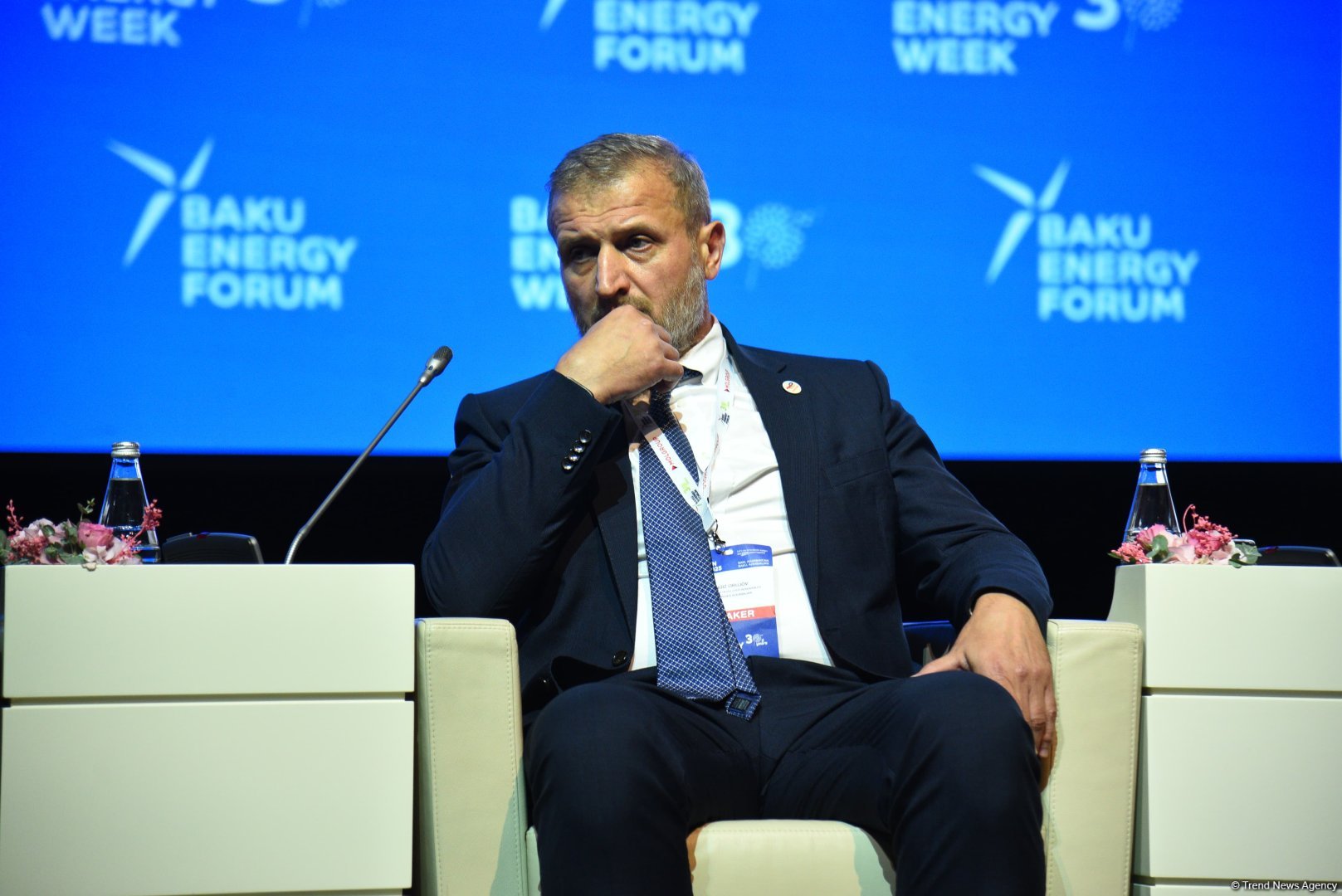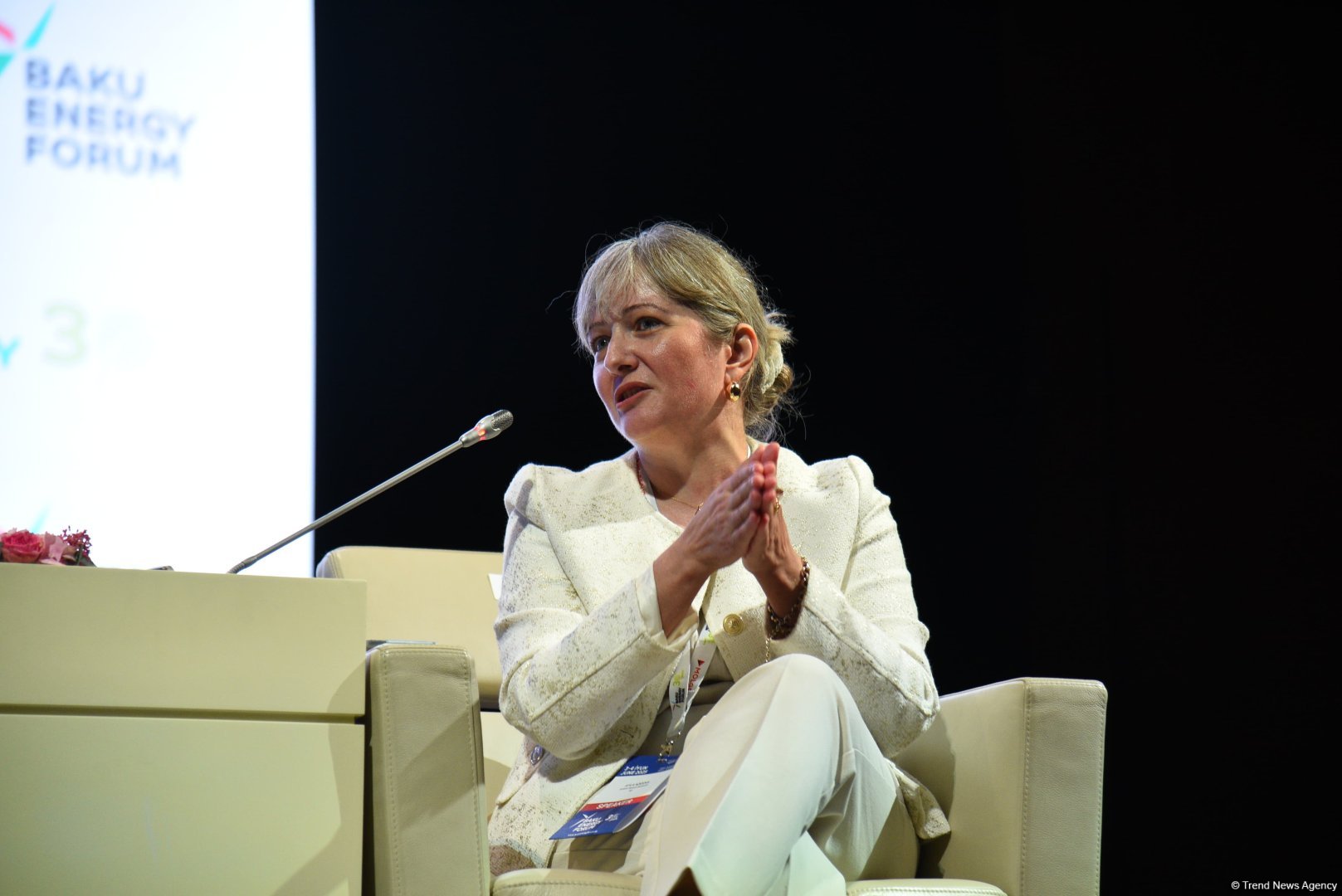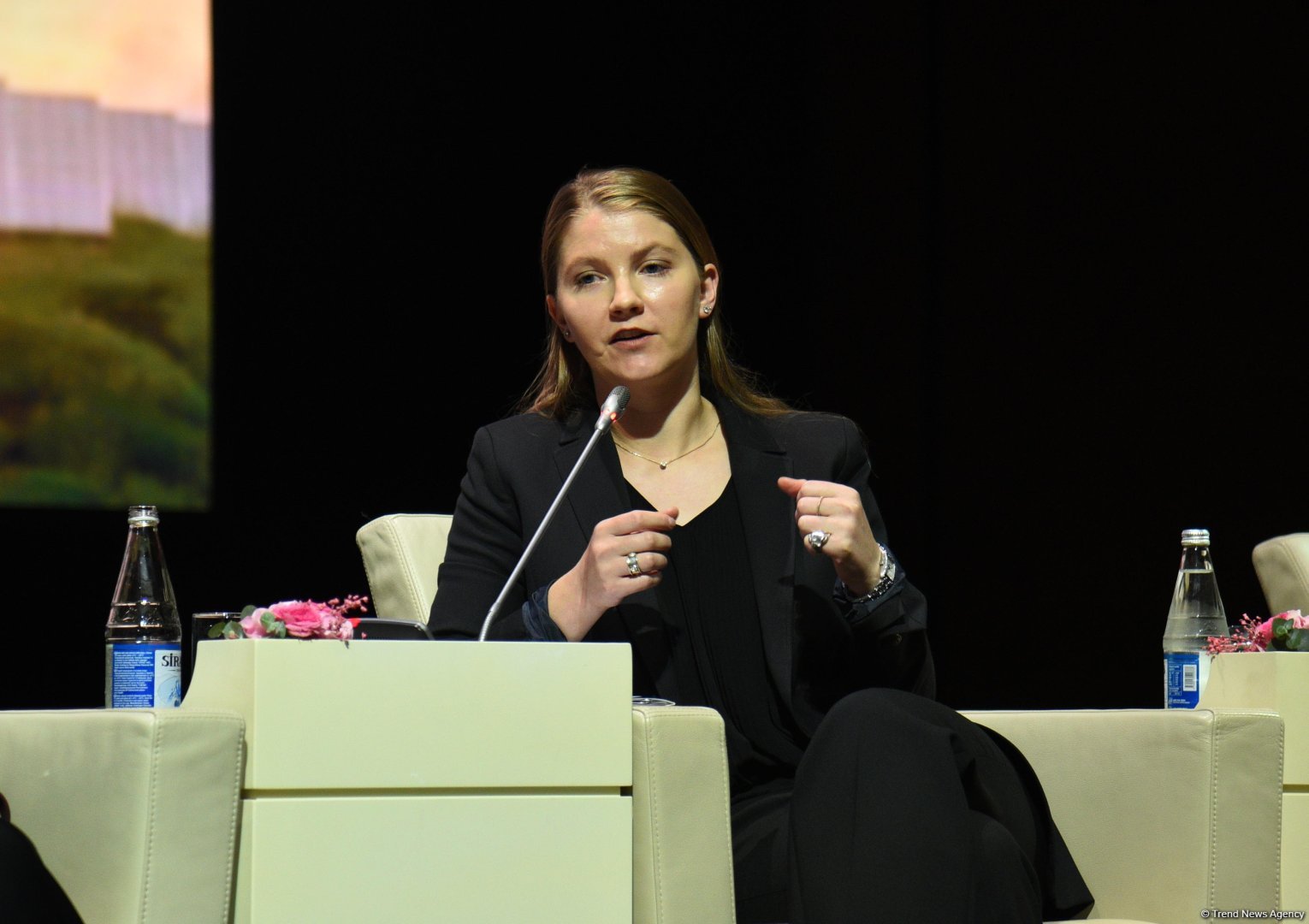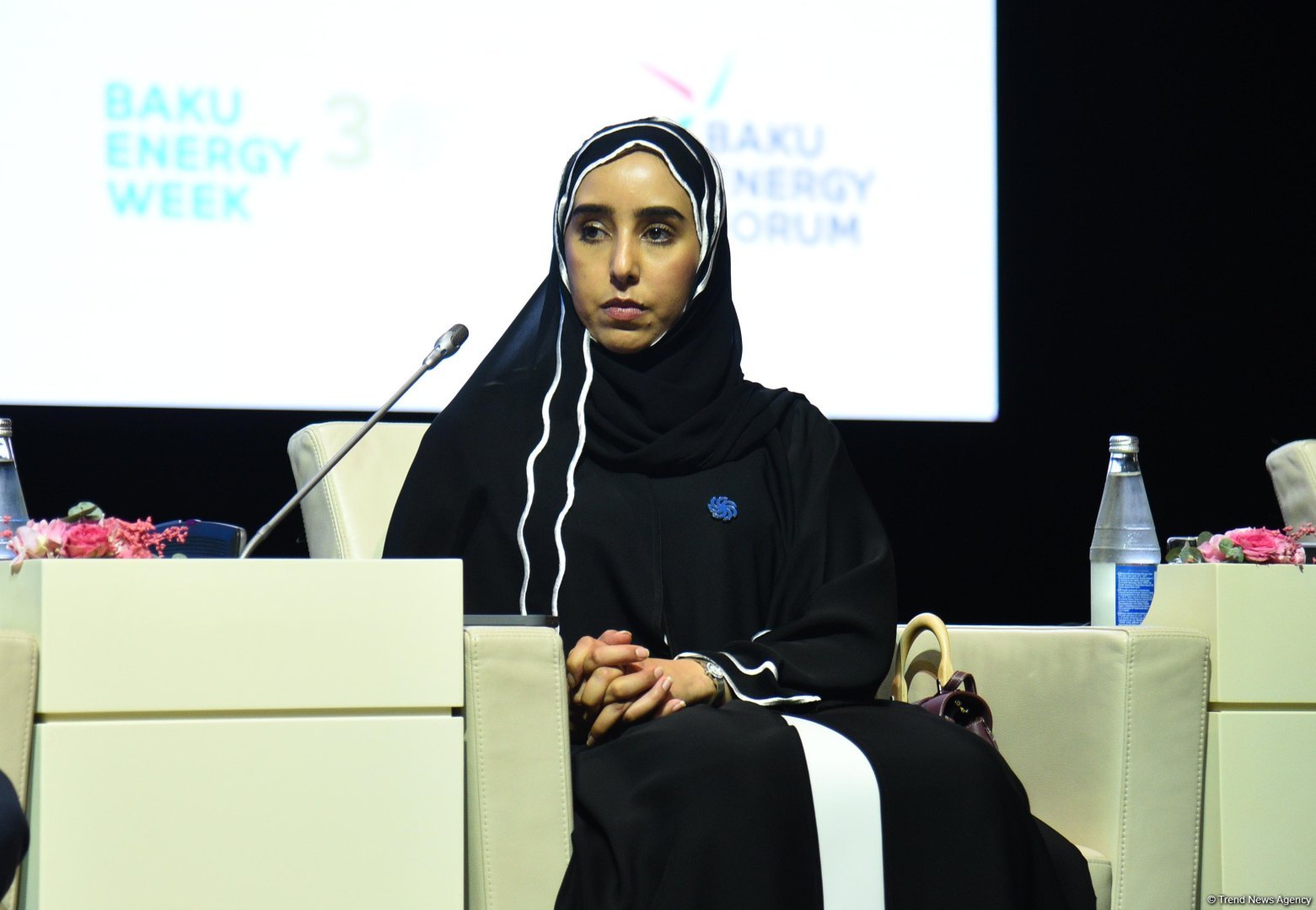BAKU, Azerbaijan, June 3. The first day of the 30th anniversary Baku Energy Forum has ended, Trend reports.
The participating countries, in addition to Azerbaijan, included Germany, the USA, Belgium, the UAE, Bulgaria, Great Britain, China, Estonia, Finland, France, Switzerland, Italy, Hungary, the Netherlands, Norway, Pakistan, Romania, Russia, Guinea-Bissau, Saudi Arabia, Slovenia, Türkiye, and Japan. This year's forum program includes a record number of speakers: 74
The forum is held within the framework of the 30th Baku Energy Week, which also marks the 30th anniversary of the Caspian Oil and Gas International Exhibition and the 13th Caspian International Energy and Green Energy Exhibition, Caspian Power.
This year, Baku Energy Week is hosting 267 companies from 39 countries. The geography of participants covers the entire energy landscape - from Europe and the Middle East to Asia and Africa.
Addressing the forum, Energy Minister Parviz Shahbazov noted that over the next two years, ten solar and wind power plants will be put into operation in Azerbaijan.
“We are expanding our approach to diversification not only by sources and routes, but also by types of energy. In the next two years, the first stage of the development of green energy will be completed: 10 solar and wind power plants will be put into operation,’ he said.
According to the minister, a 240 MW wind farm will be completed by the end of 2025. “Construction of 3 more solar power plants with a total capacity of 200 MW will start this year. Preparations are also underway for a 100 MW floating solar plant project.
With total investments of $2.7 billion, the share of renewable energy sources in Azerbaijan's installed energy capacity will reach 33.7 percent by 2027. We plan to increase this share to 38 percent by 2030 and to 42.5 percent by 2035,” the Minister added.
Pakistan's Oil Minister Ali Pervaiz Malik further noted that Pakistan is interested in expanding cooperation with Azerbaijan in the energy sector.
According to him, Pakistan attaches great importance to sustainable development in the energy sector and considers Azerbaijan as an important partner in this process. “We want to move towards inclusiveness and sustainable development. We have to ensure the sustainability of this transition in industrialization and support for the introduction of renewable energy sources and technologies,” the minister said.
He also emphasized that Pakistan is ready for joint cooperation in the field of gas infrastructure, including opportunities for pipelines connecting countries in the region. “Azerbaijan is assisting us in developing gas infrastructure and fields in Pakistan. The energy infrastructure of our country is favorable for work in this field, as Pakistan has a network of pipelines with a length of 120,000 kilometers,” Ali Pervaiz Malik said.
Minister of Energy and Water Resources of the Federal Republic of Somalia, Abdullahi Bidhaan Warsame, has emphasized that Somalia attaches great importance to partnership with Azerbaijan in the field of energy.
According to him, Somalia highly values the strategic partnership with Azerbaijan and seeks to deepen cooperation in the field of clean energy. “ As part of our efforts to move into the energy sector, Somalia has signed a memorandum of understanding with the Ministry of Energy of Azerbaijan to expand cooperation in the field of renewable energy,” the minister noted.
He also emphasized that the Baku Energy Forum has become an important platform for expanding cooperation with global partners. “ This platform helps us engage in joint initiatives, making our energy transition more inclusive and sustainable,” Warsame added.
In turn, Director for Energy Platform and International Relations of the European Commission's Directorate General for Energy, Cristina Lobillo Borrero, added that Europe considers Azerbaijan a reliable partner in the energy transition.
She said the European Union continues to make steady progress in the energy transition and, for the first time in its history, has produced more electricity from renewable energy sources compared to conventional sources. “ This is an important achievement, and we continue to fulfill our commitments on sustainable development and climate neutrality,” she said. Borrero also emphasized that the issue of energy security in the context of particular geopolitical instability remains a priority for the EU. “We need reliable partners, and Azerbaijan is a vivid example of such a partner. We have strong cooperation both in the field of natural gas supply and renewable energy sources,” she said.
According to her, the European Commission intends to completely stop importing Russian energy resources, and for this purpose, it is planned to reduce gas purchases from 155 bcm down to 33 bcm per year. In this regard, partnership with alternative suppliers and the development of “green” energy are becoming key directions in the EU policy. The EU representative also emphasized the importance of international cooperation, transparency in access to resources, and attracting investments in sustainable energy, highlighting the role of platforms such as COP29 and the Baku Energy Forum in building a global energy dialogue.
The Deputy Minister of Energy and Natural Resources of Türkiye, Ahmed Berat Çonkar, stated that Türkiye plans to direct large-scale investments in the development of renewable energy sources. “Our national energy plan envisages large-scale investments in renewable energy. Currently, 60 percent of the power we receive is from renewable energy sources, making us fifth in Europe and eleventh worldwide in this regard,” he said.
Çonkar noted that Türkiye plans to increase its total wind and solar power capacity from 30 GW to 120 GW by 2035, which will require an investment of about 100 billion dollars. He said the first nuclear power plant in Akkuyu is scheduled to be commissioned soon. Thus, the nuclear power capacity is planned to be increased to 20 GW by 2050.
Deputy National Security Advisor of the Czech Republic, Tomáš Pojar, noted that in two weeks, Azerbaijani oil will be officially included in the Czech state reserves.
He emphasized that the Czech Republic is the second-largest importer of Azerbaijani oil. He also noted that Azerbaijani gas is an important component of the Czech Republic's energy balance. “It is important to realize that energy security is not only a matter of the source country. It is also a question of supply routes. And one cannot depend on one corridor. The reasons can be not only political, but also environmental. That is why we have always been supporters of multi-level energy cooperation - both in terms of renewable energy and traditional sources,” Tomáš Pojar said.
Deputy Minister of Economy and Sustainable Development of Georgia Vakhtang Tsintsadze emphasized that Azerbaijan continues to play a central role in strengthening the energy security of Europe, and the strategic partnership between Azerbaijan and Georgia goes beyond the energy sphere.
According to him, Georgia's participation in the event once again demonstrates the high level of bilateral relations between Tbilisi and Baku. “From the very beginning, Georgia has been part of the joint project “Southern Gas Corridor” with Azerbaijan. This corridor is a reliable source of energy not only for our country, but also for Europe as a whole. Azerbaijan is a reliable partner in the energy sector and other strategic directions,” he said.
The deputy minister also emphasized the importance of joint projects in the field of green energy - the Georgian-Romanian interconnector and the Azerbaijan-Georgian-Romanian-Hungarian energy corridor. According to him, these initiatives will contribute to the diversification of supply routes and strengthen the energy sustainability of the European Union.
Speaking at the forum, SOCAR President Rovshan Najaf emphasized that there is a great investment interest in Azerbaijan's hydrocarbon sector.
“We have several exploration and production projects that we have been working on for many years, as well as geological exploration projects. Therefore, there is a great investment interest in the hydrocarbon sector of Azerbaijan, as well as in the field of renewable energy production,” Najaf said.
The President of SOCAR noted that the documents signed yesterday and today open the way for additional investments that will expand the Company's project portfolio, increase oil and gas production in Azerbaijan, as well as stimulate the development of renewable energy production. “As for renewable energy, the main challenge facing many countries, and maybe all countries, is to increase the capacity of power grids so that the electricity generated can be used not only in the domestic market, but also for export. The development of such infrastructure requires close interstate cooperation, as mass production of electricity becomes meaningful and efficient only when several countries are involved in this process. This makes it possible to increase volumes,” he emphasized.
bp's Regional President for Azerbaijan, Georgia, and Türkiye, Gary Jones, stressed that bp is committed to the transition to sustainable energy in the Caspian Sea. According to him, the company focuses on the development of traditional oil and gas projects, as well as on allocating large-scale investments in the field of decarbonization and renewable energy sources. “By 2027, we plan to increase investments in upstream projects to $10 billion. Nevertheless, we want to make sure that we reduce our emissions into the environment,” he said. Gary Jones also stressed that Azerbaijan remains one of bp's most stable investment regions, especially thanks to the ACG and Shah Deniz projects. The company pays special attention to the integration of renewable energy sources, such as solar panels in Jabrayil, which will contribute to the decarbonization of the Sangachal terminal. "We are considering projects in Karabakh, as well as developing a fully electrified platform. This reflects our holistic approach to the energy of the future," added Gary Jones.
Jean-Luc Guizou, Senior Vice President of Exploration and Production in Europe at TotalEnergies, added that the company will continue to implement projects, focusing on reducing emissions and economic efficiency, including the development of the Absheron field. According to him, the company's philosophy is based on maintaining strict discipline when implementing new projects; in this philosophy, priority is given to reducing the carbon footprint, as well as optimizing capital expenditures. ”For any new project, we are guided by this principle: in technical prices, costs should be below $20 per barrel, and at the same time, the project should contribute to the decarbonization process," he said. The total energy representative also stressed that the approach used in Iraq to simplify project design is actively used in the Absheron project: "We have found ways to simplify pipeline design, reduce capital costs, and onshore in Sangachal, we use solutions aimed at reducing the environmental footprint and eliminating excess equipment.” Guizou noted that this approach not only ensures profitability but also fully complies with the company's mission to develop a sustainable and environmentally responsible energy portfolio.
Addressing the event, Secretary General of the International Energy Forum Jassim Alshirawi stated that Azerbaijan is making significant progress in developing a sustainable and balanced energy strategy, and the Baku Energy Forum plays an important role in this field as a platform for global dialogue.
“The Forum comes at a crucial time - when we discuss not only energy issues, but also environmental problems, geopolitical challenges, and the need to update the global energy agenda.”
Jassim Alshirawi noted that last year's COP29 conference in Azerbaijan clearly demonstrated the importance of understanding the challenges of energy transition and building a sustainable and secure energy system in a rapidly changing environment. According to him, IEF annually organizes the Energy Outlook Symposium together with the International Energy Agency (IEA) and OPEC. It discusses future energy scenarios, the growth in global energy demand, and the need to invest in both conventional and renewable energy sources. " 89 percent of global energy consumption is projected to continue to come from conventional sources. However, the share of renewable energy is expected to increase significantly in the coming decades. It is particularly important to ensure investment in developing countries as these countries, despite representing two-thirds of the world's population, receive only 15 percent of global investment in clean energy," he noted.
The forum will continue its work tomorrow.

